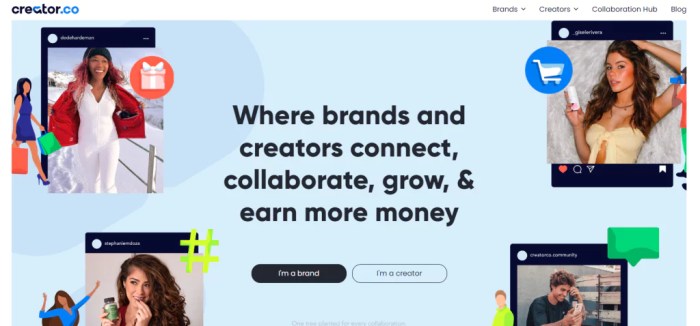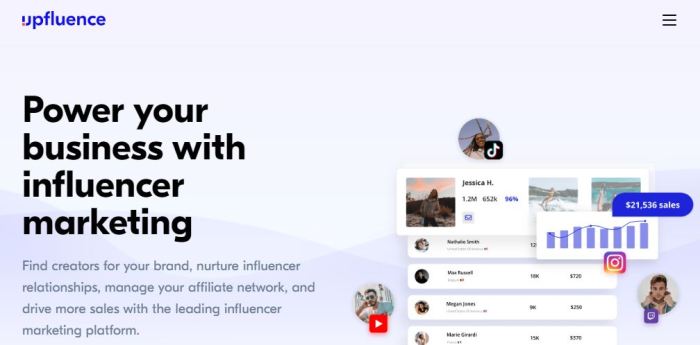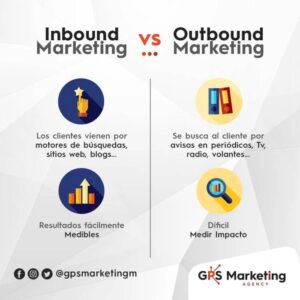
Influencer marketing platforms have revolutionized the way brands connect with their target audiences, creating powerful synergies that drive engagement and conversions. These platforms serve as a bridge, linking companies with influential figures across various social media channels to elevate brand visibility and credibility.
In a landscape where traditional marketing strategies are evolving, influencer marketing platforms offer unique features such as influencer discovery, performance analytics, and streamlined communication tools, making them indispensable for modern marketers looking to leverage authentic voices.
Overview of Influencer Marketing Platforms
Influencer marketing platforms have become essential tools for brands aiming to connect with their target audience through social media influencers. These platforms provide a streamlined way to identify, communicate, and manage influencer partnerships, enhancing the overall marketing strategy.The key features of influencer marketing platforms include influencer discovery, campaign management, performance tracking, and analytics. These platforms enable brands to search for influencers based on specific criteria such as demographics, interests, or engagement rates.
Campaign management features allow brands to plan, execute, and track their marketing efforts in one place, ensuring that campaigns run smoothly. Additionally, robust analytics tools provide insights into campaign performance, helping brands understand the return on investment (ROI) of their influencer collaborations.
Key Features of Influencer Marketing Platforms
The features of influencer marketing platforms are designed to support brands in maximizing their marketing efforts. Here are some essential features:
- Influencer Discovery: A comprehensive database allows brands to filter influencers by various metrics like follower count, engagement rate, and audience demographics.
- Campaign Management: Tools to create, manage, and track influencer campaigns, enabling real-time collaboration and communication.
- Performance Analytics: Detailed reports and dashboards that show the effectiveness of campaigns, including metrics such as reach, engagement, and conversions.
- Payment Solutions: Integrated payment systems streamline the financial transactions between brands and influencers, simplifying the process.
- Content Approval Processes: Features that allow brands to review and approve content before it goes live, ensuring brand alignment and quality control.
Benefits of Using Influencer Marketing Platforms for Brands
Using influencer marketing platforms provides numerous advantages for brands seeking to enhance their visibility and engagement. These benefits include:
- Efficient Collaboration: Simplifies communication and coordination with influencers, reducing the time and effort needed to manage relationships.
- Access to Diverse Influencers: Enables brands to connect with a wide range of influencers from various niches, ensuring that campaigns can be tailored to specific audiences.
- Data-Driven Decisions: Access to analytics allows brands to make informed decisions based on real-time data, optimizing campaigns for better results.
- Cost-Effectiveness: Streamlined processes and better targeting can lead to more effective use of marketing budgets, maximizing ROI.
- Brand Safety: Tools for monitoring influencer content and performance help maintain brand integrity and prevent potential risks.
Leading Influencer Marketing Platforms Available Today
Several influencer marketing platforms have emerged as leaders in the industry, each offering unique features and benefits for brands. Here are some of the most notable platforms:
- Influencity: Known for its advanced analytics and influencer discovery capabilities, providing brands with actionable insights to enhance their campaigns.
- Upfluence: Offers a comprehensive suite of tools for influencer management and analytics, allowing brands to track performance and optimize campaigns.
- AspireIQ: A platform focused on building long-term relationships between brands and influencers, facilitating creative collaboration.
- Traackr: Specializes in influencer relationship management, offering tools for tracking, measuring, and nurturing influencer partnerships.
- CreatorIQ: Provides a robust platform for enterprise-level brand management, integrating influencer marketing efforts with existing marketing strategies.
The Role of Market Research in Influencer Marketing

Effective influencer marketing strategies rely heavily on market research to ensure that brands connect with the right audiences through the right influencers. Market research helps brands understand their target demographics, identify key influencers, and create compelling campaigns that resonate with their audience. By leveraging insights from research, brands can optimize their influencer collaborations and drive better results.Market research enhances influencer marketing strategies by providing valuable insights into consumer behavior, preferences, and trends.
By analyzing data, brands can identify which influencers align best with their target audience and tailor their campaigns accordingly. This research allows brands to assess the effectiveness of potential influencers by looking into their engagement rates, audience demographics, and content relevance. The result is a more strategic approach that maximizes the impact of influencer partnerships.
Methods for Conducting Effective Market Research for Selecting Influencers
Understanding how to effectively conduct market research is crucial in selecting the right influencers for a campaign. Several methods can be employed to gather relevant data about potential influencers:
1. Social Media Analytics
Utilize tools that analyze influencers’ social media metrics such as engagement rates, follower demographics, and content reach. This data helps identify influencers who have an authentic connection with their audience.
2. Surveys and Polls
Conduct surveys or polls among the target audience to gather insights on their preferences regarding influencers and content types. This direct feedback can guide the selection process.
3. Competitor Analysis
Analyze competitors’ influencer marketing strategies to identify successful influencers within the industry. Understanding who your competitors work with can provide insights into effective partnerships.
4. Influencer Platforms
Utilize influencer marketing platforms that provide databases of influencers along with analytics features. These platforms often offer filtering options based on audience demographics, engagement metrics, and niches.
5. Content Analysis
Review the content produced by potential influencers to ensure it aligns with brand values and resonates with the target audience. Assessing the quality and relevance of their content is key to a successful partnership.By employing these methods, brands can make informed decisions when selecting influencers, ensuring a more effective marketing strategy.
Importance of Understanding Target Demographics in Influencer Campaigns
Understanding target demographics is essential for the success of influencer marketing campaigns. Brands need to know the age, gender, interests, and behaviors of their target audience to create campaigns that truly engage them. Analyzing these demographics allows brands to tailor their messaging and influencer choices to better align with their audience’s values and preferences.For instance, a skincare brand targeting Gen Z consumers may collaborate with influencers who have a strong presence on platforms like TikTok, where younger audiences are more engaged.
Conversely, a luxury brand might choose to partner with influencers on Instagram whose followers are primarily affluent individuals interested in high-end products. Key points to consider include:
Audience Alignment
The influencer’s follower demographics should closely match the brand’s target audience for effective outreach.
Cultural Relevance
Understanding cultural nuances can help brands choose influencers who resonate with specific demographic segments.
Engagement Metrics
High engagement rates among a target demographic often indicate a stronger connection, making the influencer a suitable choice.By prioritizing target demographics in influencer marketing efforts, brands can significantly enhance their campaign effectiveness and achieve better return on investment.
Integration with Marketing Software and Public Relations
In the modern marketing landscape, the integration of influencer marketing platforms with existing marketing software is essential for maximizing campaign effectiveness. Such integration allows brands to leverage data-driven insights, streamline workflows, and enhance communication. By using these platforms alongside traditional marketing tools, businesses can create a cohesive strategy that amplifies their reach and impact.Influencer marketing platforms can seamlessly integrate with a variety of marketing software, including CRM systems, email marketing platforms, and analytics tools.
This integration enables brands to manage influencer relationships and campaigns more efficiently while accessing valuable metrics to evaluate performance. For instance, platforms like HubSpot and Salesforce can pull in data from influencer campaigns, allowing marketers to understand customer engagement and tailor their strategies accordingly.
Successful PR Campaigns Utilizing Influencer Marketing
Influencer marketing has proven to be a powerful tool in public relations campaigns, helping brands enhance their visibility and credibility. One notable example is the “Like a Girl” campaign by Always, which used influencers to challenge gender stereotypes through relatable storytelling. This campaign not only resonated with audiences but also achieved significant media coverage, showcasing the impactful synergy between influencer marketing and PR.Another successful case is the partnership between the fitness brand Gymshark and various fitness influencers.
By leveraging influencer endorsements, Gymshark successfully positioned itself as a leader in the activewear market, achieving rapid growth and substantial media attention. The combination of influencer marketing with traditional PR strategies helped Gymshark build a loyal community of followers and advocates.Here are some strategies to effectively combine influencer marketing with telemarketing efforts:
1. Identify Influencers with a Targeted Audience
Collaborate with influencers whose followers align with your target market. This ensures your telemarketing messages reach relevant prospects.
2. Coordinate Timing and Messaging
Align influencer content with telemarketing outreach to create a unified message. This can enhance the effectiveness of both strategies, as potential customers see consistent branding across channels.
3. Leverage Influencer Endorsements in Calls
Train telemarketers to mention influencer endorsements during calls. This adds credibility to your offerings and can increase conversion rates.
4. Follow Up with Personalized Messaging
Use insights gained from influencer marketing to tailor telemarketing follow-ups. Personalized interactions can significantly improve customer engagement and satisfaction.By integrating influencer marketing with telemarketing, brands can create a multi-channel approach that enhances overall campaign effectiveness and fosters stronger relationships with their target audience.
Last Recap

In conclusion, influencer marketing platforms not only enhance brand reach but also provide valuable insights into audience behavior, ultimately driving successful marketing campaigns. By integrating these platforms into their marketing strategies, brands can effectively harness the power of influencers to achieve their objectives in an increasingly digital world.
Answers to Common Questions
What are influencer marketing platforms?
Influencer marketing platforms are tools that connect brands with influencers, enabling efficient campaigns through features like discovery, tracking, and analytics.
How can brands choose the right influencers?
Brands should consider factors such as audience alignment, engagement rates, and the influencer’s content style to ensure a good match.
Are influencer marketing platforms suitable for small businesses?
Yes, many influencer marketing platforms offer flexible pricing and tools that cater to businesses of all sizes, making them accessible for small businesses.
What metrics should be tracked on these platforms?
Key metrics include engagement rates, reach, conversions, and return on investment (ROI) to assess the campaign’s effectiveness.
Can influencer marketing be combined with other marketing strategies?
Absolutely! Influencer marketing can be effectively integrated with other strategies such as content marketing and social media advertising to maximize impact.





